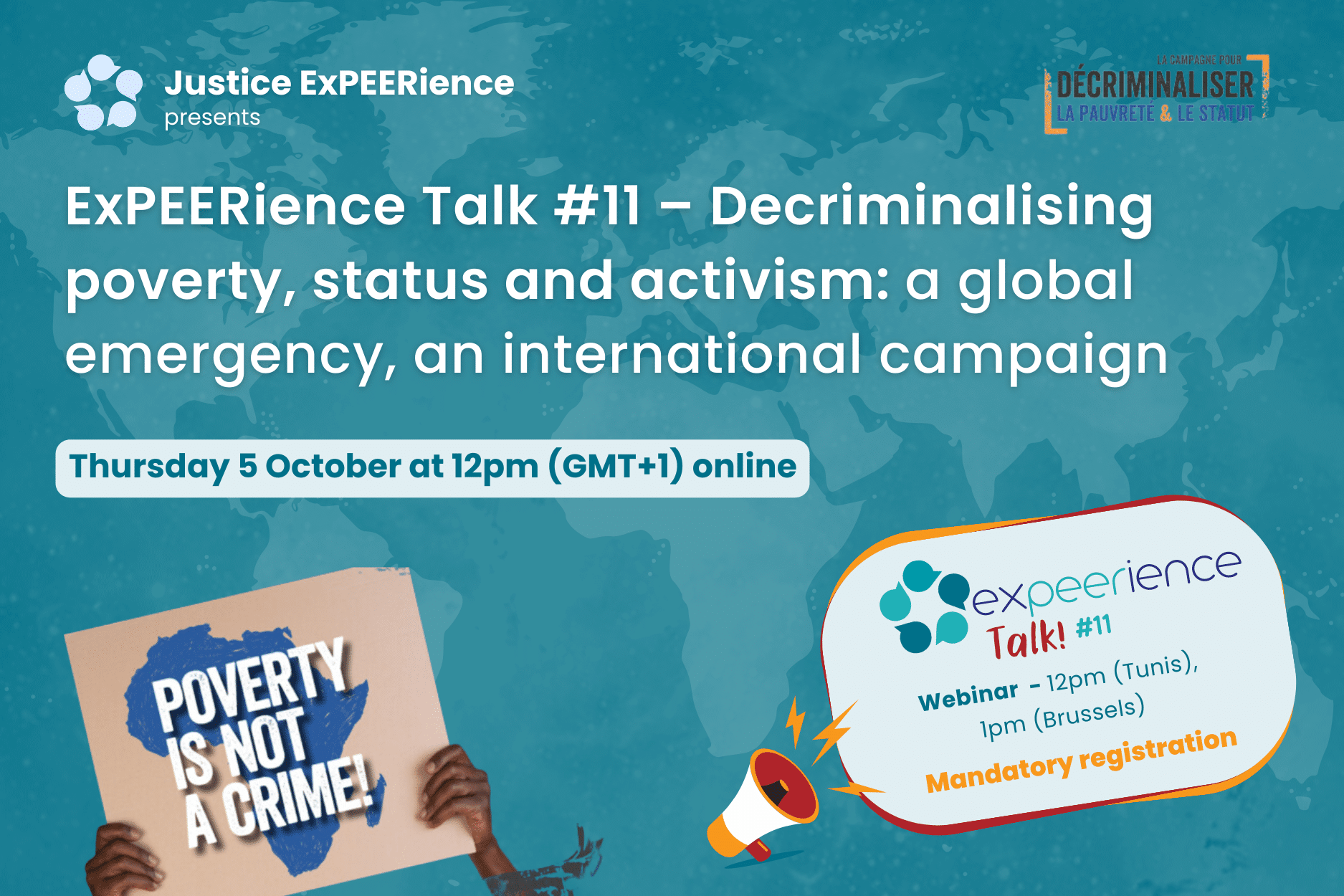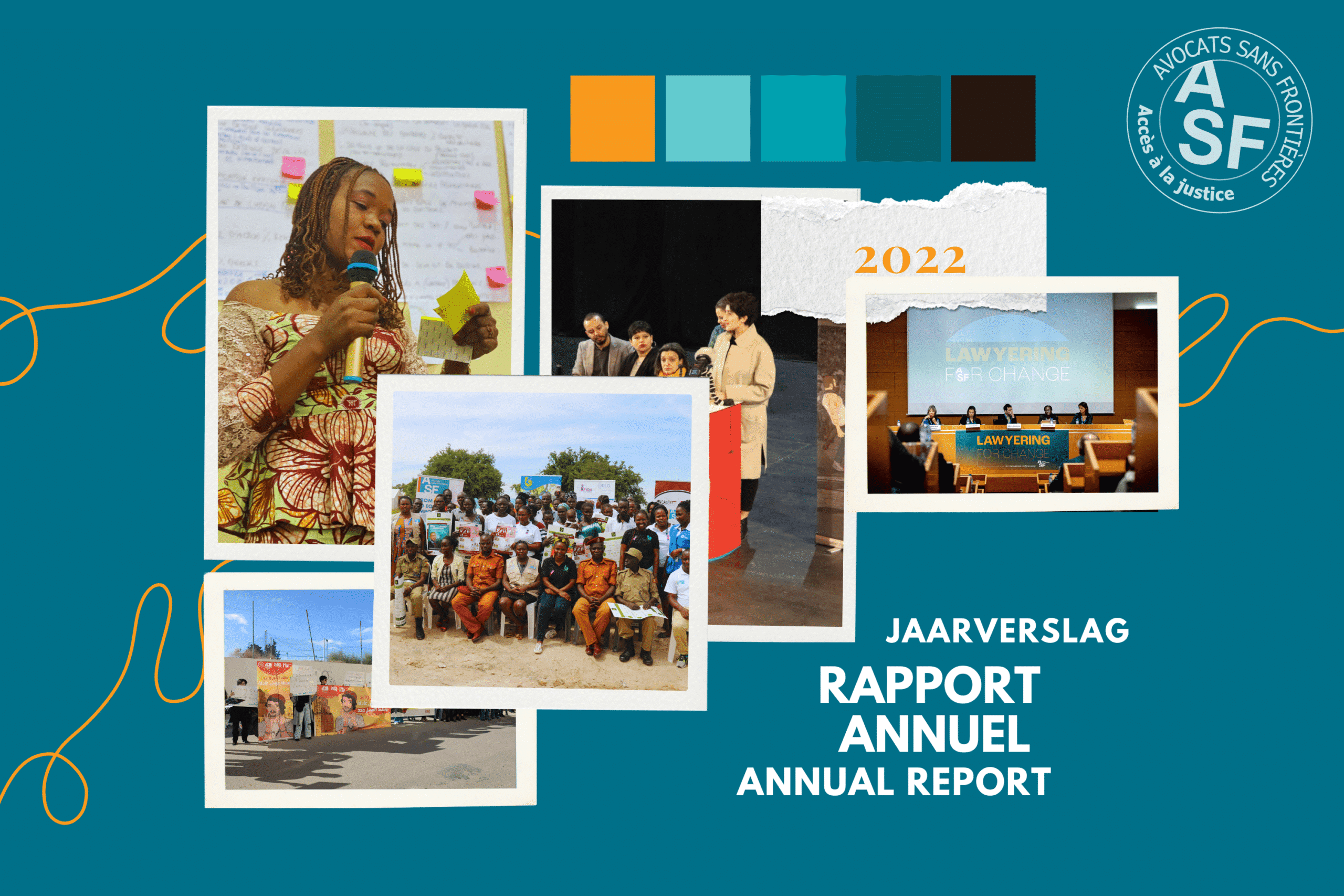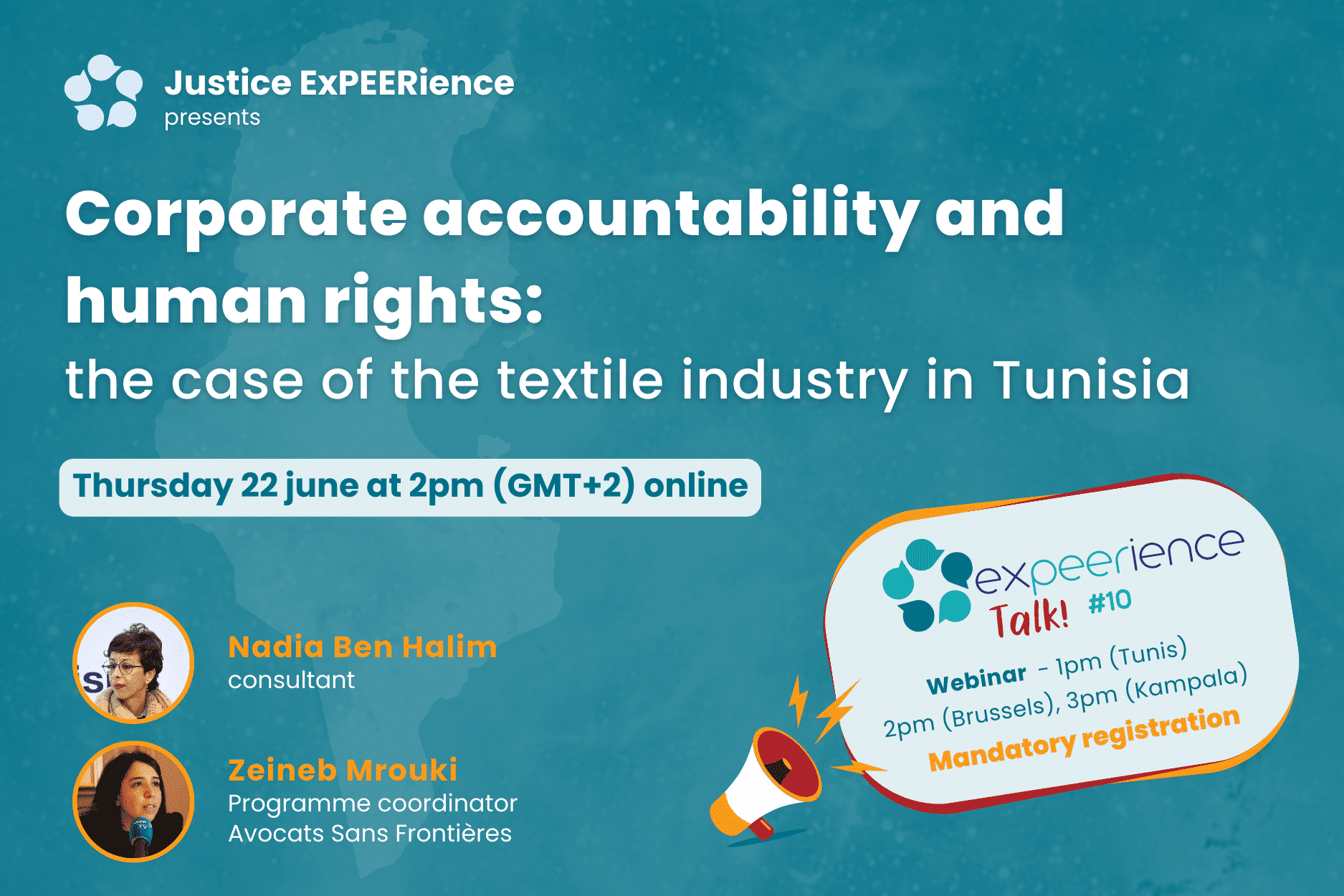Category: Women’s rights
-
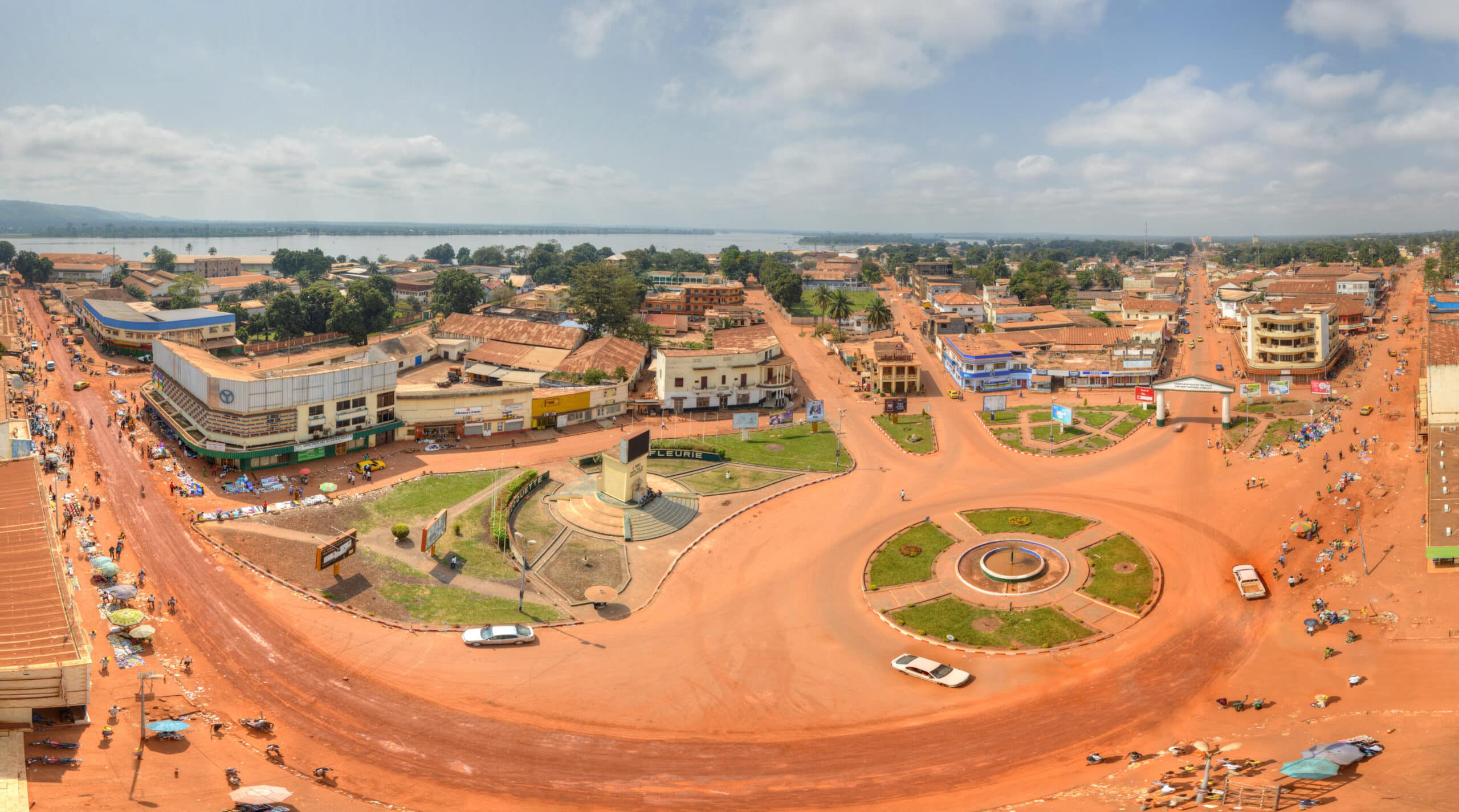
The Central African Republic – Protecting human rights defenders
ASF and its partners in the Central African Republic are supporting women human rights defenders in order to enable them to offer appropriate support and quality services to people in vulnerable situations in their needs for justice and guidance.
-

Tunisia: People in migration threatened by the rise of discriminatory rhetoric and policies
Because of its geographical position and proximity to the European coast, Tunisia has long been considered a major transit country for sub-Saharan migrants. However, heightened security measures and the militarization of the European Union’s borders, as well as border outsourcing policies, have meant that Tunisia has become a country of settlement for many people in…
-
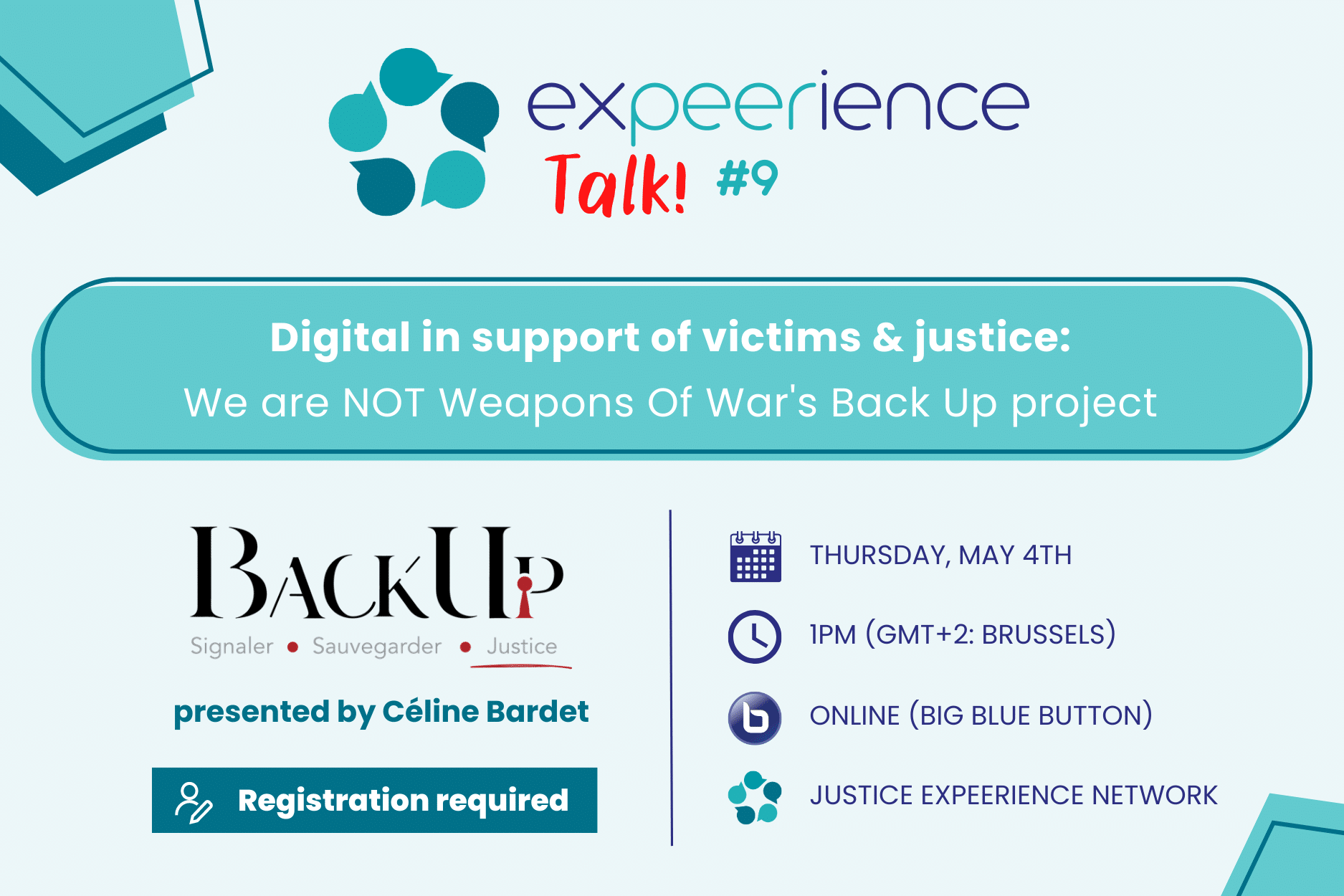
ExPEERience Talk #9 – Using digital to support victims and promote justice: the Back-up project of We are NOT Weapons of War
For this 9th ExPEERience Talk, we are delighted to welcome Céline Bardet, founder of the organisation We are NOT Weapons of War (WWOW) whose mandate is to fight sexual violence in conflicts, in particular against rape as a weapon of war. She will talk about the importance, in the face of these issues, of support…
-
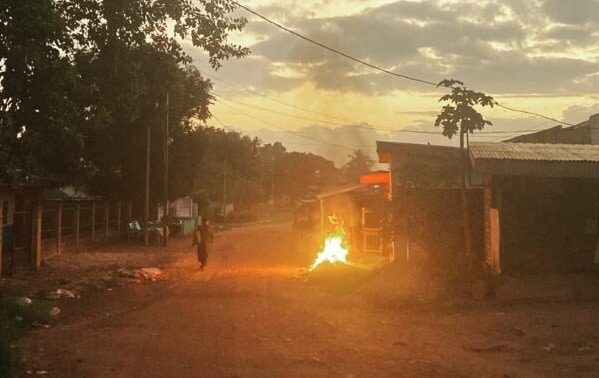
Witchcraft representations and judicial treatment of the offence of Charlatanism and Witchcraft Practices in the Central African Republic
In the Central African Republic (CAR), witchcraft is omnipresent: it dominates and shapes the daily life of the population, mainly in rural areas. Witchcraft representations, which are an integral part of Central African customs and practices, provide an explanatory framework for all life events: death, illness, accidents, professional or academic failures, etc. The successive crises…
-
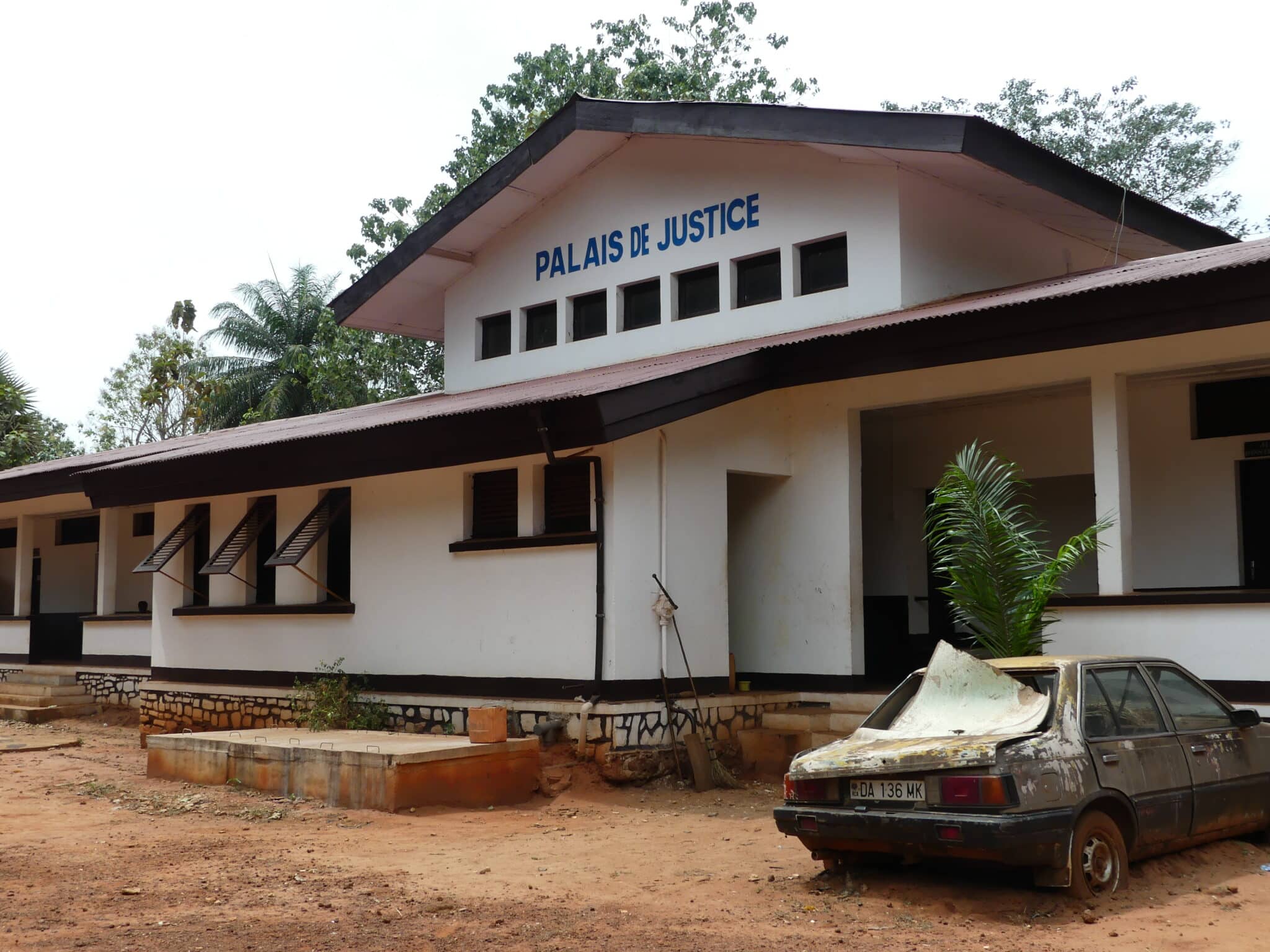
The penalisation of charlatanism and witchcraft practices: An obstacle to the realisation of the rights of women and minors in the Central African Republic
In the Central African Republic (CAR), the practice of charlatanism and witchcraft is considered a crime under the penal code. The prosecution of suspected “sorcery” practitioners frequently leads to serious human rights violations and systematically impacts women and children. At the Bimbo women’s prison, half of the women in prison are condemned for alleged witchcraft…
-
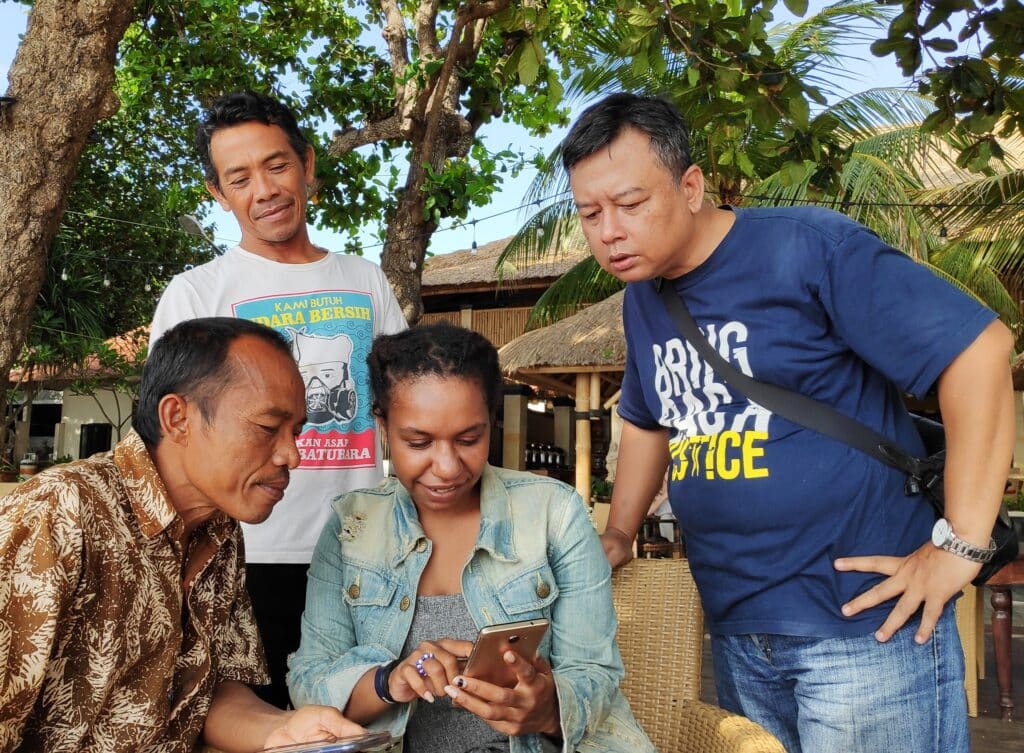
Indonesia: 5 years supporting access to justice
In 2017, ASF launched its activities in Indonesia with two local partners. Together, we worked to increase access to both formal and informal justice mechanisms for marginalized and groups in vulnerable situations through improved community-level, evidence based service delivery. A special focus was put on training and supporting paralegals to help them assist local populations…


